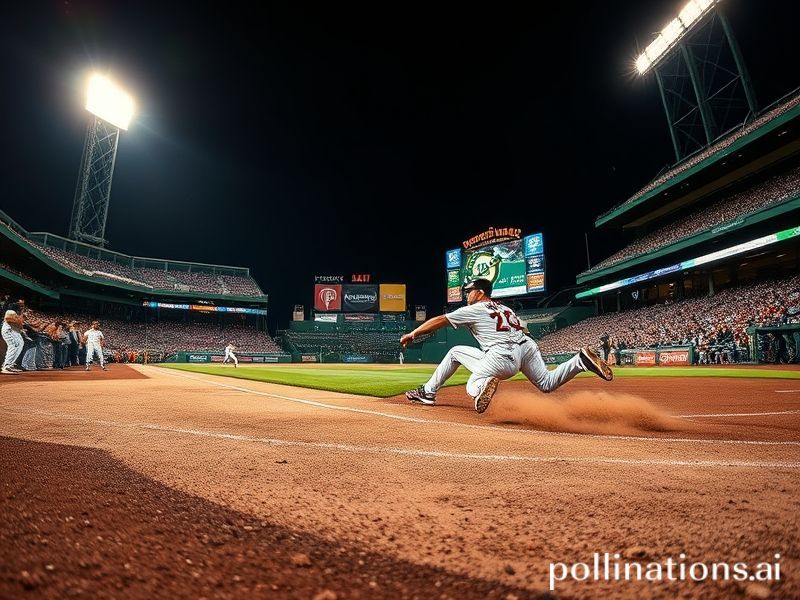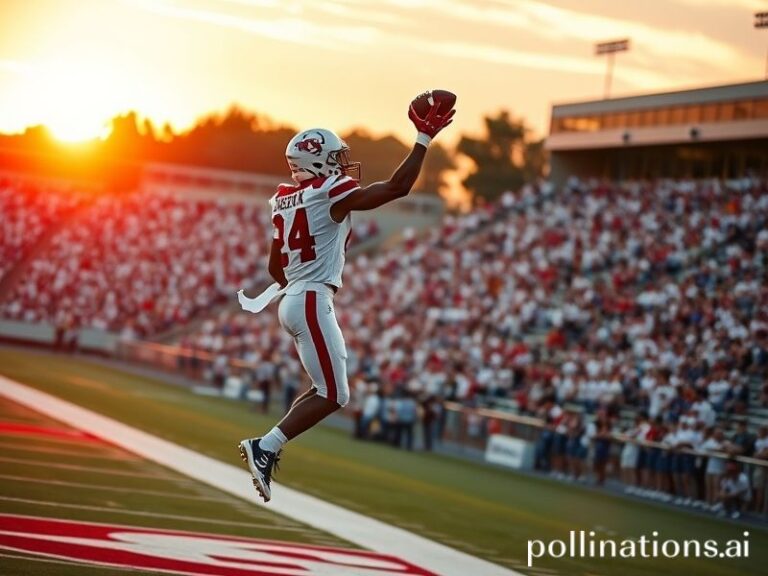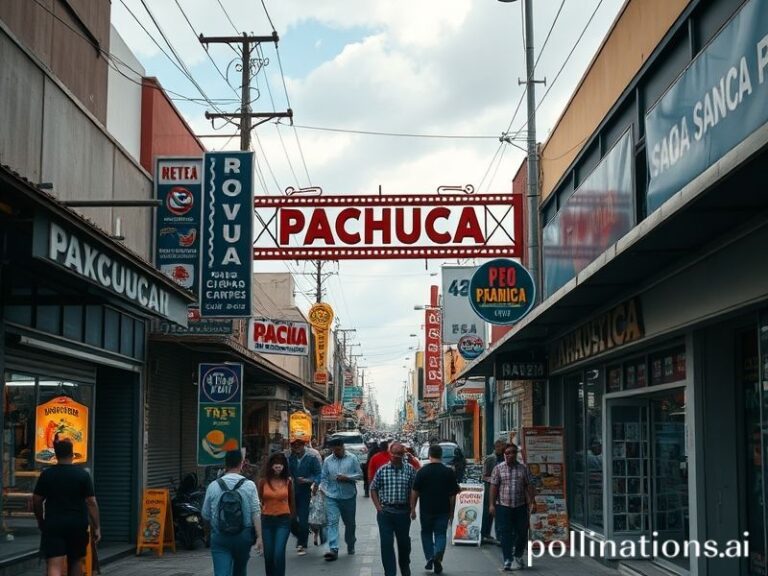Red Sox vs Athletics: Late Capitalism in Nine Innings, Now With Extra Wildfire Smoke
The Red Sox–Athletics tilt has always been a quaint sideshow of American provincialism—two teams named after socks and accountants, respectively, playing a children’s pastime while the planet burns. Yet on Wednesday night in Oakland, as the smoke from Canada’s record-breaking wildfires drifted south like an apologetic surrender note, the game acquired the faint whiff of geopolitical metaphor. Boston arrived with a payroll larger than the GDP of Vanuatu; Oakland countered with a roster whose combined salary wouldn’t cover a week of European natural-gas futures. The final score—Red Sox 7, Athletics 2—was less a ballgame than a morality play for late-stage capitalism, wrapped in peanuts and Cracker Jack.
Let’s zoom out. The Coliseum—already a concrete sarcophagus where 1970s optimism goes to die—was hosting its penultimate “home” series before the Athletics decamp to Sacramento, a waystation on their billionaire owner’s pilgrimage to Las Vegas. That’s right: the green and gold are being uprooted like a weed so that a casino magnate can plant a retractable-roof money tree on the Strip. International readers may wish to note this is the same franchise that once exported the gospel of sabermetrics to the world, teaching even Icelandic teenagers how to calculate OPS+ in between volcanic eruptions. Now the lesson plan reads: “Build stadium, receive subsidy, abandon town.” It’s the new American dream, only with more public debt and fewer fireworks.
Meanwhile, across the Pacific, Japanese fans woke at dawn to watch the stream, bemused that a country capable of landing on the moon still can’t keep a baseball team in its own hometown. In Seoul, KBO executives took notes on how not to treat a legacy brand. And in London, where the Red Sox will play next season’s “London Series” (because nothing says authentic tradition like fly balls ricocheting off Big Ben), pub patrons asked the eternal question: “Why do Americans insist on exporting their slowest sport while simultaneously refusing to call football by its proper name?”
Back in Oakland, the sparse crowd of 8,413 souls—a number that wouldn’t fill a modest Bundesliga standing section—wore respirator chic and practiced social distancing by accident. They chanted “Sell the team!” with the resigned cheerfulness of people who’ve already priced moving vans. One fan held a sign reading “This Is Fine,” a meme born from a webcomic about a dog sipping coffee in a burning room. The dog, it should be noted, was wearing an Athletics cap. Subtlety is dead; long live branding.
On the field, Brayan Bello struck out ten, none of whom will likely afford Bay Area rent next year. Each swing-and-miss was a tiny act of economic commentary: the batter overmatched, the pitcher underpaid relative to arbitration projections, the viewer reminded that even minor-league bus rides now come with surge pricing. When Oakland’s Esteury Ruiz stole second in the ninth—too little, too late, naturally—the PA system blasted “I’m Shipping Up to Boston.” The irony was thicker than the wildfire haze.
Yet the affair was not without global resonance. Bookmakers in Macau adjusted futures markets; cryptocurrency bros in Dubai live-tweeted their parlays; a Norwegian cruise ship altered its course to catch the final innings on satellite, because nothing complements fjord-gazing like watching a franchise drown in real time. And somewhere in Geneva, a World Health Organization intern calculated the particulate matter inhaled per pitch, concluding that every foul ball subtracts three minutes from life expectancy. The report will be ignored, obviously—there’s no grant money in baseball-induced asthma.
In the end, the Red Sox flew back east to await their next round of existential dread, while the Athletics packed up for Sacramento, a city best known for being the capital of a state that may soon slide into the ocean. The world spins, the wildfires burn, the oceans rise, and still we argue about designated hitters. Someday archaeologists will sift through the remains of the Coliseum and wonder why we built cathedrals to a sport whose primary export is nostalgia. Until then, the schedule rolls on: Thursday, 6:40 p.m., probable pitchers TBD, fate sealed.







